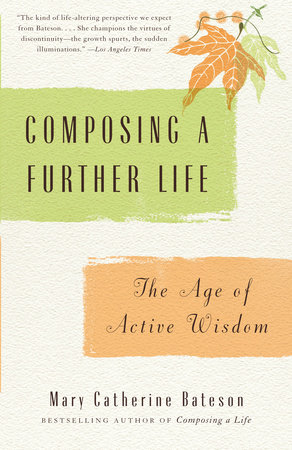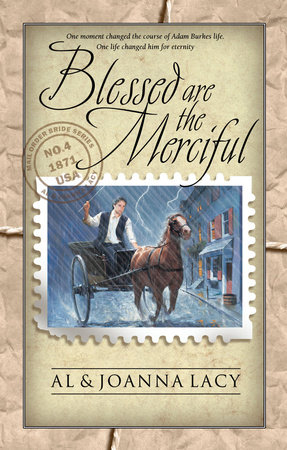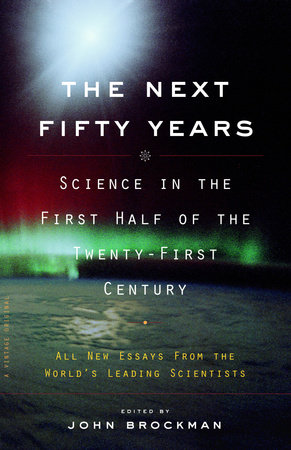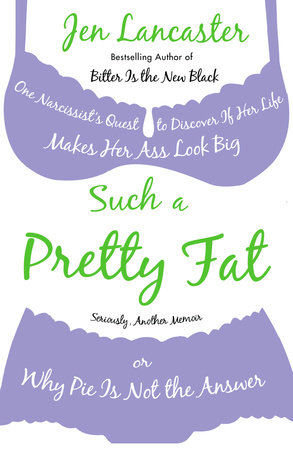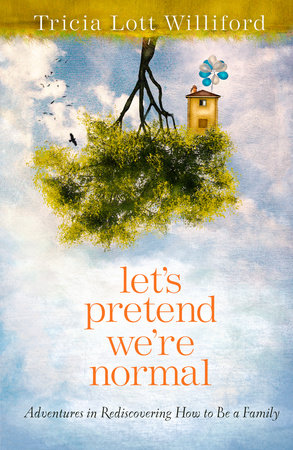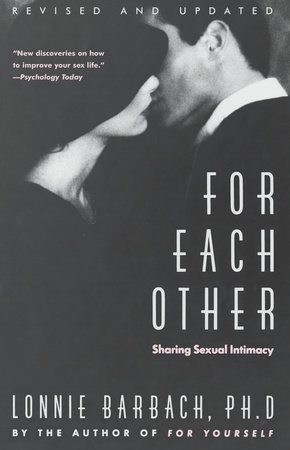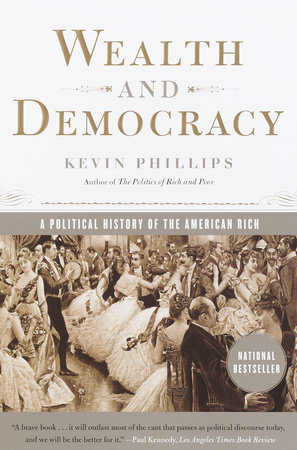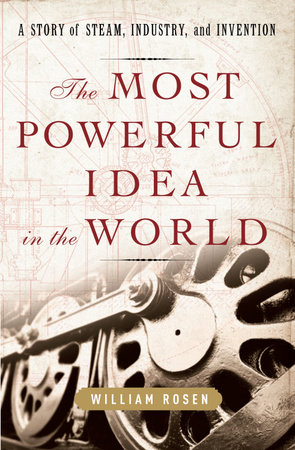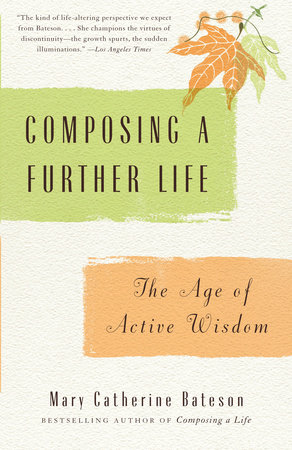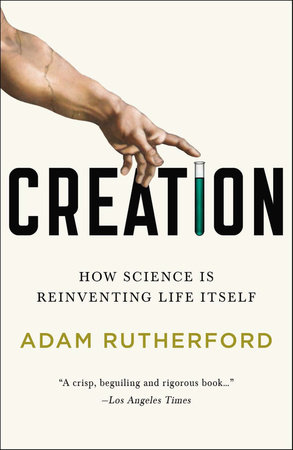Author Q&A
Q: Was there a particular event or catalyst that made you decide to follow up your bestseller Composing a Life with Composing a Further Life? Did you expect to write a follow-up at some point or did something happen in our society that made you feel it was essential?
A: Many people have asked for a follow-up on the specific women in Composing a Life, but this is a different kind of follow-up, moving on to a later stage in the life cycle with a different set of examples, this time both men and women. On the one hand, I began to realize that my contemporaries were approaching their later years with obsolete assumptions and expectations. On the other hand, I asked what I could most usefully contribute on the basis of my skills.
Q: The subtitle of your book is “The Age of Active Wisdom.” How would you define “Active Wisdom”?
A: Active Wisdom is the product of modern improvements in health that not only extend longevity but extend the years of relatively energetic and pain free productivity and participation, creating a new life stage, Adulthood II, inserted before old age. Wisdom comes from a lifetime of learning and reflecting on experience, but often in the past wisdom was associated with the waning strength and immobility of old age. Today’s seniors often have decades of energetic health that allows them to play active roles in society.
The convergence of wisdom and activism for large numbers of men and women in Adulthood II is a new phenomenon in human history. Consciousness of this phenomenon may be as revolutionary as the shifts in consciousness behind the liberation movements of the 20th century. As we recognize and work with active wisdom, older Americans will discover not only the joys of social engagement but their ability to make unique contributions to a just and humane future.
Q: You have termed the years you are writing about “Adulthood II”. What are those years and what specifically defines them? When does one move from Adulthood I to Adulthood II?
A: I don’t think the definition can be narrowly chronological, but roughly speaking I am looking somewhere between the ages of fifty and eighty, years when one or more of the major preoccupations of a lifetime winds down, and when we are aware both that time is limited and that we have time we had not expected to have, sometimes brief but often as much as thirty years. For some, Adulthood II begins at retirement, which is different for different professions, and it often ends with increasing health problems and frailty. For others it begins with an empty nest. The beginning is often marked by a shift in circumstances that makes us ask again about who we are, who we love, and what we have to offer.
Q: What do you feel are the most common misperceptions about life in these years?
A: There are two very common misperceptions: One is the expectation of decrepitude and chronic illness, which now come later than we have learned to expect. The other is the idea that work is a negative which everyone will be glad to get away from – in fact, humans do better when they feel they are making a contribution.
Q: You profile many different people in this book—a retired Maine boatyard worker who has become a silversmith and maker of fine jewelry; an African American woman who explores the importance of grandmothering; two gay men finding contentment in mutual caring; the retired dean of a cathedral in New York City who exemplifies how a multiplicity of interests and connections lead to deeper unity; and Jane Fonda, who shares her ways of dealing with change and spiritual growth—How did you go about finding and selecting the people you write about?
A: In general, I don’t choose people to profile who can be directly emulated—instead, I am trying to suggest a range of possibilities. I make a point of interviewing only people for whom I feel respect, people who have made constructive choices and grown wiser, but not people who are perfect. My methodology requires a relationship of trust, so I generally choose people I already know or who are recommended through friends. I also try to find individuals with experience of some aspect of the larger topic that should be included.
Q: How do you see this book being used?
A: This is really a book for beginning conversations as we explore the new possibilities of Adulthood II, a whole new stage in the life cycle. The lives described here all have an element of pioneering, improvisations in newly discovered territory, so this book and others offer preliminary maps of still uncharted developments that will gradually be understood over the next decade, changing the way we look at the entire life span. As we become conscious of the change, we will want to rethink education—starting with pre-school—to fully support lifelong learning. We will want to rethink career profiles and job descriptions to enable contributions by older adults without shutting out youth entering the labor market. Perhaps we will achieve a new understanding of the value and rewards of work. As we listen to the voices of those who have lived through multiple changes, we will explore the meaning of sustainability and think further ahead in our political and economic decisions, and we will apply a sense of how individuals can continue to grow to the criminal justice system. My hope is that by beginning from individual narratives I will also stimulate conversations about communities and about the life of the planet.
Q: You use the idea of adding a room to a house as a metaphor for thinking about the next phase in life. Why a house?
A: It’s a metaphor that allows me to show very concretely that the years of increased average life expectancy gained in the 20th century—some thirty years—have an effect on the entire life span, as a new family room, for example, changes the way the other rooms in a home are used and changes the relationships and behavior of a family. But beyond that, I think it is an intuitively powerful metaphor, and many people adopt it as they either move or remodel to express transitions in their lives.
Q: You warn against the tendency to promote independence over interdependence and our almost obsessive need to avoid ever being dependent on others, to never become (to use a word often heard about older people) a “burden”. When did this idea become so pervasive and why, as you say, is “independence an illusion”?
A: I think the theme of independence has been established in American culture since pioneer days, when settlers sometimes moved further west as soon as they could smell someone else’s campfire. At the same time, they did expect to help each other, and neighborliness or kindness to strangers were important. We have developed an ethos of fairly isolated individuals or
nuclear families, sufficiently affluent not to share and protected by privacy, in contrast to most societies where individuals are aware throughout their lives of the usefulness of a network of kin and the responsibilities this entails. Ironically, the old proverb “a rolling stone gathers no moss” has shifted meaning and “moss,” (property, kin, relationships) is heard as a negative. Some have argued that ecology is the central metaphor for thinking about the future, and ecology argues interdependence and connection with the entire natural world.
Q: You write, “We tend to assume that the old, because they have fewer years ahead of them are less concerned with the future than younger adults, but in fact the group best equipped to advocate for the future are thoughtful older adults.” You talk about the idea of harnessing the wisdom and experience of older adults and putting them towards the key causes or our time—the environment, for example. Do you think politicians and organizers are effectively harnessing the power of this group?
A: No. So far, politicians seem literally blind to the role that older adults can play. But “harnessing” may not be the right word. Older adults can contribute creative ideas and new points of view that need to be tapped, as well as numbers and hands. Polls at present do not explore the influence of grandchildren or grand nieces and nephews on decisions, they simply explore self-interest and concern for entitlements, obscuring the concern we have for the world beyond our lifetimes. Older adults take less for granted, for they have seen customs change and the economy go up and down, and have learned to recognize both positive and negative change and the costs and benefits of adaptation. We stereotype seniors as having fixed opinions—yet their opinions have been evolving through long years of change and continue to evolve. Many adults in midlife are overloaded with responsibilities and are forced to focus on the immediate future—the problems of today and tomorrow—rather than on the years and decades ahead. We need to take responsibility for environmental conditions as we become aware of our dependence on them—and of the importance of species diversity in sustaining life.
Q: You have spoken often of the importance of libraries for older generations and have done extensive work with libraries around the country. Can you talk a little about your involvement as well as why libraries are so important in this cause?
A: Well, I was asked how libraries should prepare for the retirements of the Baby Boomers, beyond getting “more large print books.” What I came to realize was that the changing characteristics of aging require a shift of consciousness, which is best achieved through conversation, and that libraries could serve as sites for such conversations, as well as providing resources. Around the country, libraries also often offer courses in computer literacy, ways to find appropriate volunteer activities, and, most important, neutral sites for discussion.
Q: What other institutions are key for those in Adulthood II?
A: Social scientists use the word institution in two ways—in one sense, the family is an institution, marriage is an institution. In the other sense, institutions are formal organizations. Because the family has been weakened in many ways, I think it is important to seek out institutions that span the generations, such as communities of worship or political parties. Educational institutions are also worth consideration because they may have programs oriented to communities or special programs for seniors. Seek out institutions that challenge new learning and offer new connections and relationships.
Q: For someone just entering Adulthood II, can you offer some practical advice about what first steps to take towards making these years the best they can be?
A: Look after your health, keep fit, and think through your finances, but don’t let these practical considerations obscure the more basic values of your life, so take time to discover where your heart is. Don’t move too fast—a year of travel or study, combined with reflection, may make a useful transition. Don’t let a warmer climate or convenient and moderately priced housing tempt you to move away from family and friendship and environments where you can continue to make a contribution. Beyond that, I believe that some form of life review is useful, simply because we all have resources and memories of coping that can be resources in
adjusting to a new stage of life.
Q: You say that composing a further life involves thinking about the entire process of composing a life and the way in which early experience connects to later. How have these years made you reflect differently on your own life?
A: They have changed my priorities and made me aware of continuities that might once have seemed incidental—for instance, I have become aware of a thread of continuing interest in how differences between individuals and between groups can be bridged, starting from research some forty years ago about communication between mothers and newborn infants and played out today in an interest in intergenerational communication and in addressing the misunderstandings of Islam in our own culture. Looking back, I find I have a very different set of criteria for success and for what has been worth doing—often activities which are regarded as irrelevant to professional careers. This kind of looking backward affects choices I make now—what I choose to write about and what invitations I accept—since the meaning of any story tends to be affirmed by its ending. We compose the story of our lives as we continue to live them, learning along the way and reflecting more deeply. I look backward with some regrets but above all with gratitude and forward with hope.
